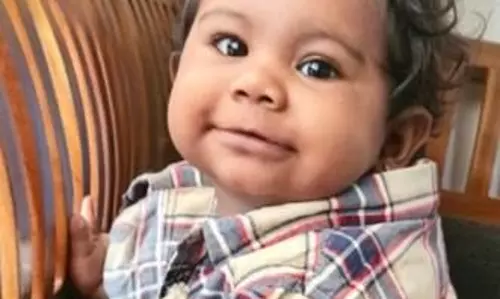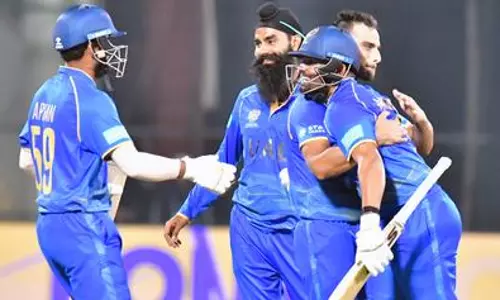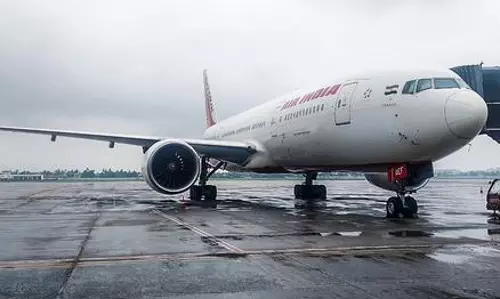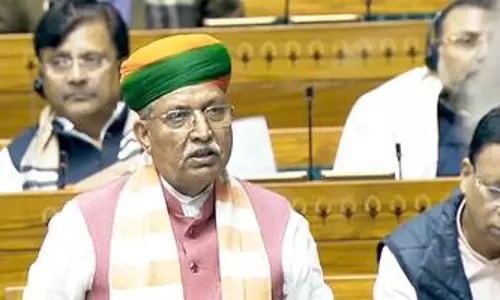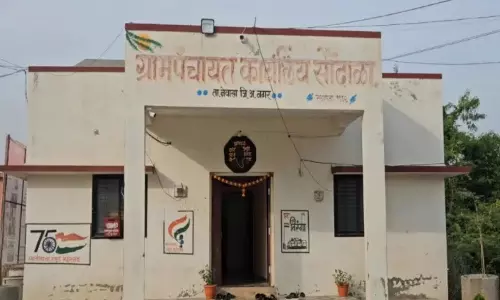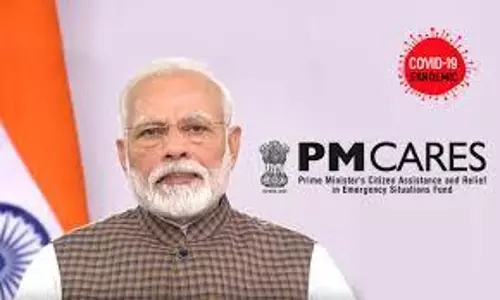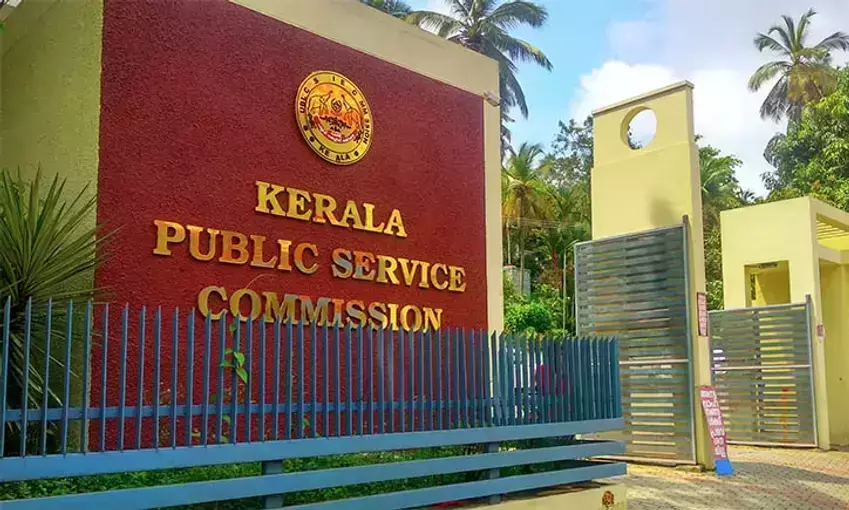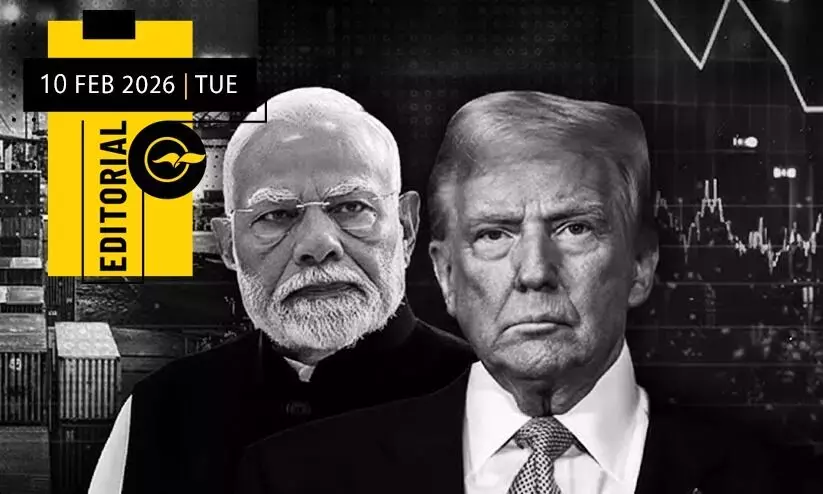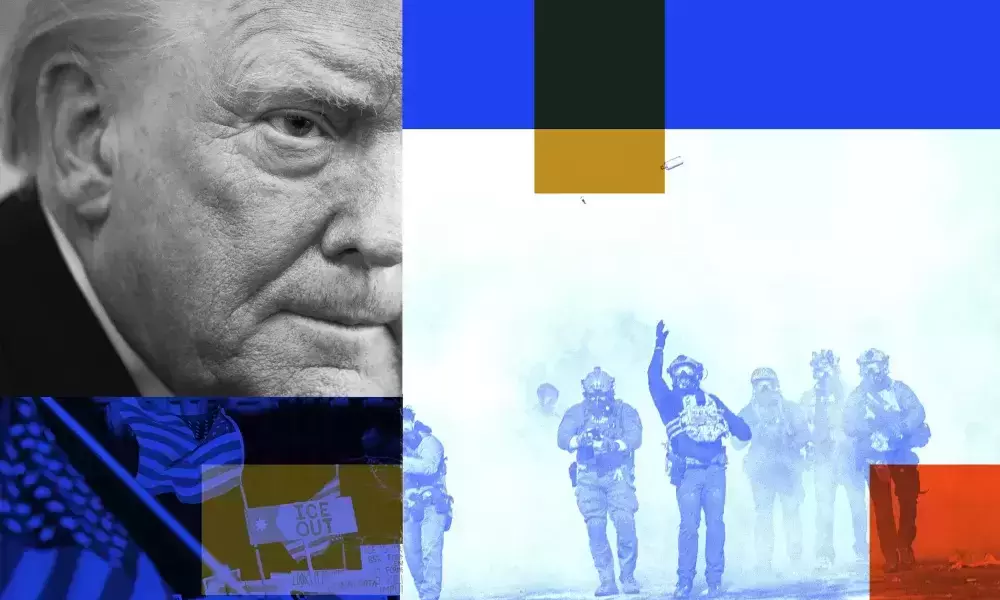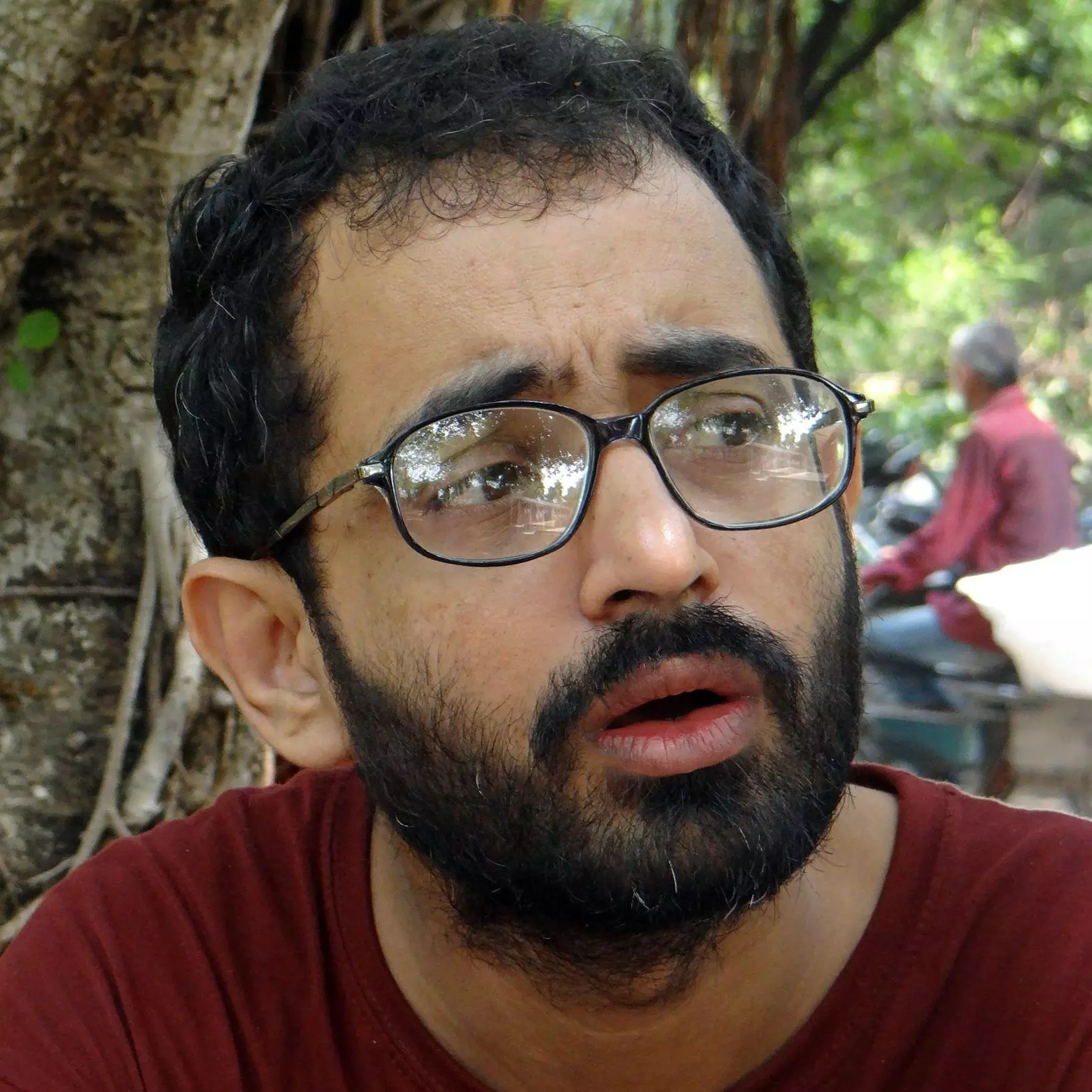

My Friend Umar
text_fieldsIt has been one year since Umar Khalid was put in jail under a UAPA case. To commemorate the occasion, a small meeting was held at Delhi's Press Club. Before I reached the venue, the place was overflowing with activists and scholars. I could enter the hall after much difficulty. People were listening to the speakers with rapt attention.
The speakers and the audience came from diverse backgrounds. But they were unanimous in underscoring the fact that Umar is innocent. The real criminals of the Delhi Communal Violence 2020 are not Umar and other anti-CAA activists but those enjoying impunity and are being hailed as "Hindu" leaders by the mainstream media and the propaganda machines of the Hindutva forces.
In his speech at the Press Club, former chairman of Delhi minority Commission Dr Zafarul Islam Khan was right to demand a high-level judiciary probe into the Delhi Riots. It is an open secret that the Delhi Police had failed in protecting the innocents at the outbreak of the riots. They continue to harass the dissenters of the Hindutva government.
Looking back at all these events, I feel unfortunate. See the irony: a bright scholar and committed activist Umar Khalid remains in jail, while those who gave a series of hateful speeches and instigated anti-Muslim riots are scot-free. Umar, who has always spoken and acted in favour of the most marginalised sections of society, is being silenced. At the same time, those whose politics are based on hatred towards Dalits, Adivasis, Backwards, women and religious minorities are represented as India's "true voice" of India.
I have known Umar for over a decade, and I do not have doubt in my mind and heart that he is not anti-national. Nor is he a terrorist. He is an asset to our country. His place is not in jail but among us.
I have known Umar since our MA days. We both made it to JNU in 2009 and submitted our PhD thesis in 2018. He joined the prestigious Centre for Historical Studies (CHS) as a post-graduate student, while I was selected in an MA programme at the School of International Relations. The actual interaction with Umar began when I took some courses at the CHS. In the classroom, I found Umar to be very critical. His questions were always sharp. Most importantly, he spoke from the point of view of the most marginalised.
In the M. Phil course, I, too, joined the CHS. Now we both became classmates. Since the early days, Umar was interested in the Adivasi question. He was pained to see the loot of the resources of the areas inhabited by Adivasis. His concern for the rights of Adivasis got reflected in his research work. He spent months and years deciphering the literature on the Adivasis of Central India to understand their continuous exploitation at the hands of colonial and post-colonial governments.
Since his early days in JNU, he has been active as a student activist. He was seen at protests and demonstrations. Soon he became one of the strong voices in JNU student politics. Like him, I was also a left activist, but I was in a different organisation. However, we had respect for each other, and we agreed more than we differed. In his organisation, he was one of the prominent faces on the campus. He never got tired of raising slogans during the campaigns and demolishing the ruling classes' propaganda in his speech. His speech reflected his deep study. In short, he has been courageous.
Unfortunately, Umar was made a victim of his religious identity, though he never saw himself just as a Muslim. But the communal mindset of the ruling classes began to feel threatened to see the emergence of Umar as a radical student leader. He became a thorn in their eyes. The ruling establishment has been more ruthless in crushing the rise of any dissenters who were born in a particular religious community. Umar, Sharjeel, Meeran, Tahir, Khalid, Ishrat, Gulfishan, Safoora, Kafeel, etc., faced the wrath of the ruling establishment.
The coming of the new Hindutva regime in 2014, the first time in Indian politics with the absolute majority, was also a critical moment. The new Hindutva regime was clear from day one to make policies in such a way to serve the interests of a few business houses. To divert the people's attention from the plunder of the public money and resources in favour of the few, the ruling classes were working day and night to keep the pitch of Hindu-Muslim conflict to a very high level. With the help of the mainstream media, the ruling Hindutva forces began attacking JNU as an "anti-national" institute. The demonisation and later the arrest of Umar were deliberately done to tell Hindutva supporters that they are seriously fighting "Muslim fundamentalists/extremists/terrorists".
In February 2016 case at JNU, Umar was innocent. The charges of giving anti-national slogans were just propaganda. Though Umar was arrested, the Court soon gave him bail. Since then, the Delhi Police have not produced any concrete evidence before the Court to establish the charge of sedition against Umar and the other accused. The media houses acted as if they were running a kangaroo court.
Since the charges against Umar and his friends were fragile, any person with an open mind could see through the Hindutva game-plan. It was evident that the right-wing forces have been demonising the Left and the Muslim minority by turning the image of Umar and his comrades into "anti-nationals". The good thing was that many members from civil society and academics came to stand with Umar. After release from jail in 2016, Umar got several opportunities to speak his mind. Since he was an activist and scholar, he began to win support among ordinary people with logic and facts. A large section of Dalits, Adivasis, Backwards and Muslims began to see him as their future leader. This annoyed the ruling classes more than anything else.
By the end of 2019, university students were out in the street to oppose the Citizenship Amendment Act (CAA). Women, particularly Muslim women, turned up in a large number to save secularism and the Indian constitution. The protest sites were filled with portraits of Bhagat Singh, Ambedkar and Mahatma Gandhi. The slogan raised from the platform of protest sites included Inquilab Zindabad and Jai Bhim.
Amid all this, Umar joined anti-CAA agitation. He campaigned and spoke all through the countries. His speeches exposed the dreadful consequences of the CAA and the NRC and the anti-people policies of governments. The anti-CAA movements, led by the youth, were a significant challenge to the Hindutva forces. The Hindutva forces made every attempt to demonise the protesters and divide their unity. But nothing worked out. Even Hindutva fanatics reached the peaceful demonstration to create riots and chaos, but they were all failed by the people's resolve.
At that time, the Hindutva government was left with two options. First, it could have rolled back the CAA and concentrated on the constructive issues. Second, it could have used force to crush the anti-CAA protests. The coward government opted for the second option. The hate-mongers began to spit venom against the anti-CAA moments. When slogans like 'Goli Maro'.. did not provoke the anti-CAA activists…', they resorted to violence with complete state impunity. The nexus among the rioters, the administration and the police, created a bloodbath in Delhi for a few days. Law and order completely broke down. Minority Muslims of Delhi ran for their lives, but the police could not protect them. Their houses, shops, and religious places were burnt down while the police remained a mute spectator. Dozens of Muslims were brutally killed, but the police did not make a serious attempt to arrest the rioters and control the situation.
Since the rioters were given protection by the state and the police working as a political wing of the ruling party, the anti-CAA protesters were charged with instigating the riots. Slowly, attempts were made to pin the tag of terrorist and anti-national to the anti-CAA protestors. Sharjeel, Meeran, Umar, Safoora, Natasha, and many others were villains before the TV screen.
But one year after Umar's arrest, the police continue to wage their tail before their masters. But the good news is that the court has several times scolded the police for failing to do their duty. The time has come to mobilise opinion for police reforms.
My heart says that soon Umar Khalid would be out of jail. Not many people know that Umar has read several books in prison, and his mind is full of creative ideas. Instead of producing concrete evidence, the charge sheet filed by the police is drawing on the TV clips, which were made of the content supplied by the IT Cell of the ruling party. I do not doubt that soon, Umar will be among us, and he will again bring energy and new thoughts to social and political movements.
My eyes are eagerly waiting for the release of my friend Umar.
(Abhay Kumar is a Delhi-based independent journalist and writer. Besides, he teaches Political Science and Urdu. His broad areas of interest include Minority Rights and Social Justice. You may write to him at debatingissues@gmail.com.)




